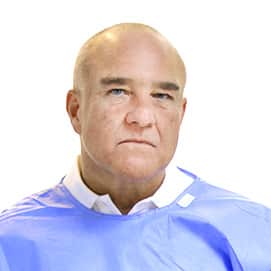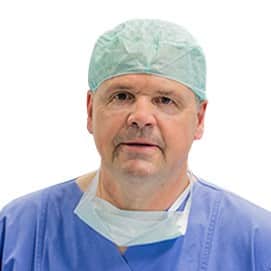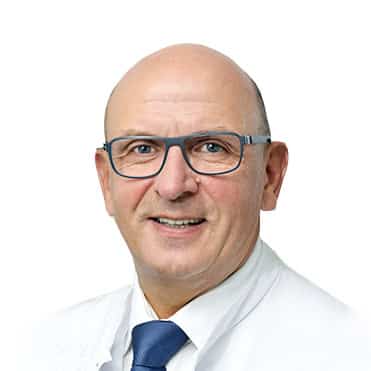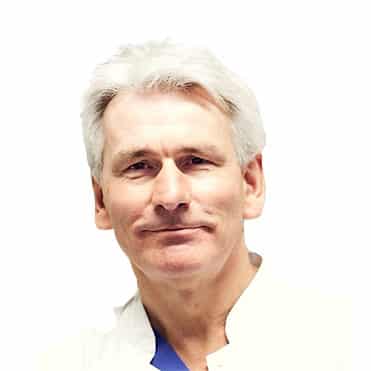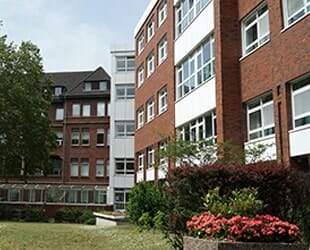About the Thyroid Diagnostic Program
This examination is carried out to assess the function of the thyroid gland, by determining the level of hormones, as well as morphological diagnostics aimed at identifying nodules, tumors, cysts and other abnormalities that may indicate various diseases, such as thyroid cancer, hyperthyroidism or hypothyroidism. If you have already been diagnosed with a thyroid disorder, such as hypothyroidism or hyperthyroidism, testing can help evaluate the effectiveness of treatment and decide whether your medication dosage needs to be adjusted.
The screening may be done in people who are at increased risk of developing thyroid disease, such as people with a family history of thyroid disease or women who have high thyroid-stimulating hormone (TSH) levels during pregnancy.
In general, screening is important for diagnosing and treating thyroid disorders and for determining the risk of developing these disorders. If you have any symptoms related to thyroid health, such as fatigue, weight changes, digestive problems, or mood changes, please contact us for an examination. We will be happy to help!
Program "Endocrinology"
Medical interview with the chief of the endocrinology clinic (medical history, final approval of the examination, and differential diagnosis program)
Complete Blood Test, including thyroid function profile, antibodies, and relevant tumour markers
What is this?
This laboratory test allows you to determine not only the cellular, electrolyte and enzyme balance in the blood, but also the level of thyroid hormones, such as TSH, Thyroxine (T4), Triiodothyronine (T3), the presence of autoantibodies to thyroid peroxidase (TPO) and thyroglobulin (TG), as well as the level of tumor markers such as thyroglobulin and calcitonin.
For what?
A complete blood test, including the study of hormones, antibodies and tumor markers associated with the thyroid gland, is an important diagnostic procedure for assessing thyroid function and diagnosing various conditions, including hypothyroidism (low thyroid function), hyperthyroidism (increased thyroid function), autoimmune diseases thyroid gland and even determination of possible oncological changes.
Ultrasound Scan of the Thyroid Gland and Soft Tissues of the Neck
What is this?
This is a diagnostic technique that uses ultrasound waves to create images of the internal structures of the thyroid gland and surrounding tissue in the neck.
For what?
The resulting images allow the doctor to assess the size, shape, structure and density of the thyroid gland, as well as detect the presence of any abnormalities such as cysts, nodes or tumors, and are also used to evaluate lymph nodes in the neck. It is an important tool for assessing the health of the thyroid gland and surrounding tissues and helps doctors determine next steps for treatment if necessary.
Thyroid and Parathyroid Scan (Scintigraphy)
What is this?
This is a diagnostic test that uses radioactive markers and a gamma camera to study the function and structure of the thyroid gland and parathyroid glands (parathyroid glands or parathyroid glands).
For what?
Thyroid and parathyroid scintigraphy is widely used to diagnose various conditions such as hyperthyroidism, hypothyroidism, thyroid and parathyroid tumors, and to plan surgical interventions related to these organs. This is a safe procedure and the radioactive doses are usually very low and do not pose a threat to the patient's health.
Medical reports of all examinations
Final discussion with the chief of the endocrinology clinic about examination results, potentially followed by treatment prescription if necessary
Radionuclide diagnostics
Technetium-99m Pertechnetate Scan of the Thyroid and Parathyroid Glands (MIBI scan)
What is this?
MIBI scintigraphy of the thyroid gland is a type of radionuclide diagnostics that allows you to monitor the accumulation of a radioisotope in the thyroid tissue by studying layer-by-layer sections of the organ and their volumetric reconstruction.
For what?
Using the study, areas of reduced accumulation of radiopharmaceuticals (“cold” nodes) and foci of hyperfixation (“hot” nodes) are identified, and a quantitative assessment of the functioning and non-functioning parenchyma of the thyroid gland is made.
Differential diagnosis of thyroid nodules
What is this?
Using the study, areas of reduced accumulation of radiopharmaceuticals (“cold” nodes) and foci of hyperfixation (“hot” nodes) are identified, and a quantitative assessment of the functioning and non-functioning parenchyma of the thyroid gland is made.
Thyroid biopsy
Ultrasound-guided fine-needle aspiration of the thyroid gland
What is this?
This is a procedure used to diagnose the study of nodules and changes in the thyroid gland. It allows doctors to obtain tissue samples from the thyroid gland for further analysis to determine whether the changes are malignant (cancerous) or benign.
Histological examination
What is this?
Histological examination is a laboratory method used to examine body tissues and cells under a microscope. It allows you to obtain detailed information about the structure, composition and morphology of thyroid tissue.
For what?
Used to diagnose malignant diseases, inflammatory processes, congenital pathologies and many other changes at the cellular level.
Duration: 1 day








